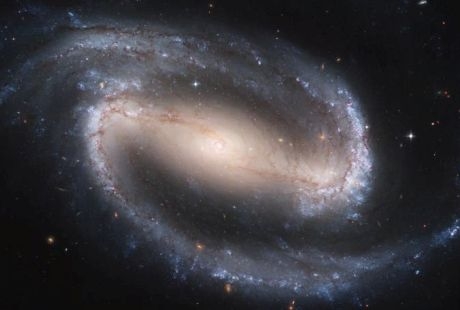

14 January 2019
2 min read
Cosmologists from the University of Portsmouth have been honoured by The Royal Astronomical Society (RAS) in its 2019 Awards. Each year the RAS recognises significant achievement in the fields of astronomy and geophysics through these awards.
They are part of the Galaxy Zoo citizen science project, which has won the 2019 Group Achievement Award.
Galaxy Zoo is among the most successful online citizen science projects ever undertaken, which has involved the University of Portsmouth from the start. With over ten years of engagement under their belt, the Galaxy Zoo team have contributed significantly to our knowledge of the formation and evolution of galaxies, through strong commitment to collaboration with members of the public.
They have established citizen science as a standard mode of data analysis across astrophysics, and initiated new areas of research sparked by Galaxy Zoo discoveries. Their roughly 55 papers, ranging from studies disentangling morphology, environment and colour, through to studies of individual morphological characteristics, have been enabled by the team’s careful work to create catalogues and measure systematic effects inherent in the classification, before releasing the data to the community.
I am so proud we are involved in GalaxyZoo. We were there at the start, and we remain part of the team performing several critical tasks and science projects with this amazing online community.
Professor Bob Nichol , Acting Pro Vice-Chancellor (Research and Innovation)
The Galaxy Zoo project has also inspired many similar projects across astrophysics and beyond, through the Zooniverse platform. Perhaps Galaxy Zoo’s most notable achievement is immensely effective outreach: the more than 500,000 people who have contributed to date come from a wide range of backgrounds, making participation in scientific research possible for all. Galaxy Zoo inspires and informs, and does so on an unprecedented scale.
Up to 10 students and staff from the University’s Institute of Cosmology and Gravitation have been involved in Galaxy Zoo over the years – making Portsmouth one of the biggest, and longest, partners in the project over the last decade.
Of course, it would not work without the dedication and passion of our citizen scientists. This award is for them.
Professor Bob Nichol, Acting Pro Vice-Chancellor (Research and Innovation)
Professor Bob Nichol, Acting Pro Vice-Chancellor (Research and Innovation) at the University of Portsmouth, said: “I am so proud we are involved in GalaxyZoo. We were there at the start, and we remain part of the team performing several critical tasks and science projects with this amazing online community. Of course, it would not work without the dedication and passion of our citizen scientists. This award is for them.”
Professor Mike Cruise, President of the Royal Astronomical Society, said: “Astronomy and geophysics are disciplines led by an extraordinarily talented group of people. The Royal Astronomical Society recognises the achievements of the very best of these men and women with our medals and awards. Our prizes are won by researchers at all stages of their careers, studying the core of the Earth, the distant universe, and everything in between. My congratulations to them all!”
The Society also awards more than 20 other medals, awards, lectures and honorary fellowships. The winners will be invited to collect their awards at the National Astronomy Meeting at the University of Lancaster in July.
Astronomy and geophysics are disciplines led by an extraordinarily talented group of people. The Royal Astronomical Society recognises the achievements of the very best of these men and women with our medals and awards.
Professor Mike Cruise, President of the Royal Astronomical Society
